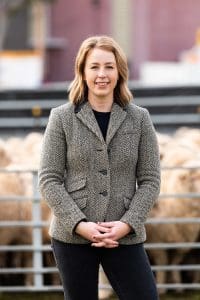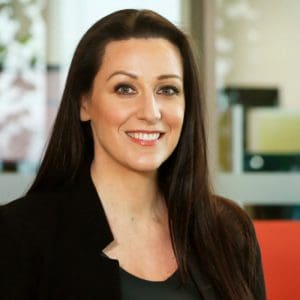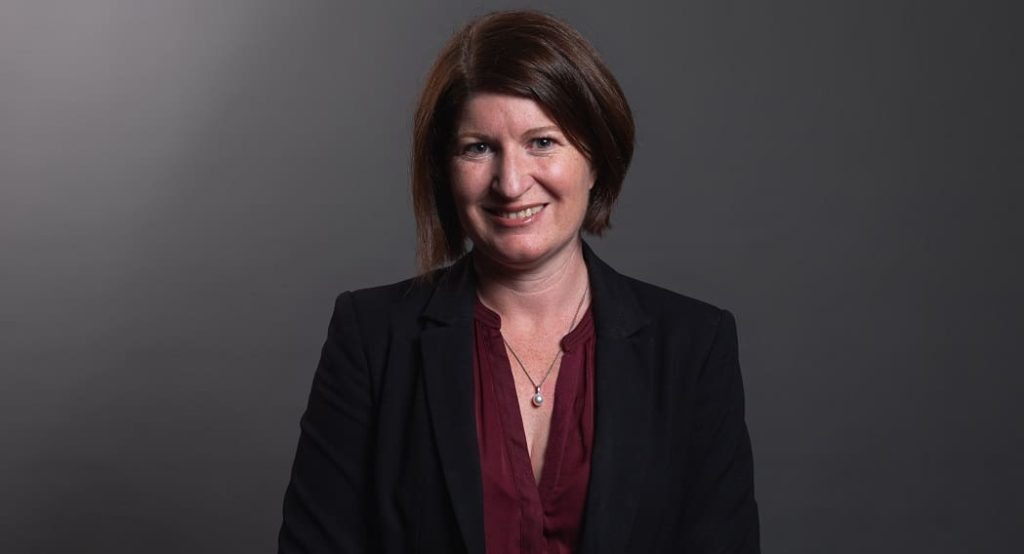
AUSTRALIAN agriculture is celebrating International Women’s Day today with new data highlighting the increasing role of women in the sector and the National Farmers Federation opening applications for its next Diversity in Agriculture Leadership Program intake.
The Department of Agriculture Fisheries and Forestry said women are increasingly staking their claim in the agricultural sector, with more than 88,000 women working in Australian agriculture in 2023.
According to the latest Australian Census, almost half (48pc) of women working in agriculture were employed as managers in 2021; however, this is down from 52pc in 2016.
DAFF deputy secretary Tess Bishop said women account for more than a third of the agricultural workforce, making significant yet often unrecognised contributions to businesses and communities across Australia.
“International Women’s Day celebrates the contribution women make to society and women are increasingly recognised for their achievements in the agricultural sector,” Ms Bishop said.
“Women have long played a vital role in agriculture and have often been overlooked. Today is about celebrating and recognising the diversity of our sector and the key role women hold now and for future growth.
“An increasing number of women are achieving qualifications in agriculture, including agricultural science, animal husbandry and wool science,” she said.
Earlier this year, the department announced a new online portal to increase the diversity of candidates for our board appointment processes.
“Our department is very proud to have a gender balance on portfolio boards of 48% but we are keen to see more talented women embrace those opportunities,” Ms Bishop said.
From 2016 to 2021, the number of women employed in agriculture grew by 7105 workers, representing almost two-thirds (66pc) of the overall expansion in the agricultural industry.
Sheep, beef cattle and grain farming accounted for 42pc of women working in the agricultural sector.
According to the latest Australian Census, although the number of women employed as managers in in Australian agriculture fell 4pc from 2016 to 2021, their number still increased between 2016 (37,787 female managers) and 2021 (38,275 female managers). The department’s gender balance for women on portfolio boards is 48pc, with 52pc held by men.
Mentoring sets the NFF’s diversity program apart
The NFF said its Diversity in Agricultural Leadership Program provides mentoring for aspiring female leaders who want to influence the future of Australian agriculture. It is open to 12 participants nationwide and provides a unique opportunity for women to clarify their goals and chart their own pathways toward achieving them, the NFF said.
NFF president David Jochinke emphasised the program’s success in elevating women in their careers.
“Mentoring is powerful tool in leadership development and it’s what sets our program apart,” Mr Jochinke said.
“By connecting emerging leaders with industry trailblazers, we’re fostering the exchange of knowledge, experiences and expanding networks.”
The NFF said the program has an alumni base of 64 graduates, and has facilitated transformative change within the industry with many graduates stepping into executive level roles, accepting board positions, and being changemakers within their communities.
GrainGrowers chief executive officer Shona Gawel said programs like this were a valuable way of supporting women and delivering even stronger representation in the rural sector.
“Investing in agricultural leadership, by opening a pathway to aspiring leaders not only helps cultivate equality and diversity, but also draws together the widest possible range of opinions and ideas.
“It significantly benefits the wider agricultural sector.”
2023 alumnus and Tasmanian berry farmer Steph Terry said the program came at a valuable time in her career.
“The program supported me in my transition from my independent legal career to becoming a Director and in-house lawyer within our family farming business.
“It also came at a time when I was progressing towards becoming president of Primary Employers Tasmania, an NFF member organisation,” she said.
“The opportunities the program presented to me including making strong connections with the cohort of like-minded women, participating in workshops, networking and mentoring tied together my change in career direction and my new role as President of an agricultural organisation.”
NFF goal to double women in ag leadership roles by 2030
Mr Jochinke said the program was key to supporting the NFF’s goal to double the number of women in agriculture’s leadership ranks and to make agriculture an inclusive industry for all by 2030.
“With the program in its seventh year, we’re seeing generational change across industry and partners.
“We know that more young women, and culturally diverse people are entering the industry. We also know that agricultural female graduates are earning more than their male counterparts,” he said.
“It’s now our job to keep this momentum going as women progress in their careers into leadership positions.”
The Diversity in Agriculture Leadership Program’s success is made possible through the support of 31 dedicated partners, including multinational corporations, advocacy bodies, and government entities.
These partners exemplify a commitment to diversity by making public pledges toward meaningful change and committing to annual progress reporting.

Sheep Producers Australia CEO Bonnie Skinner among the woolies.
Wool and sheep industries continue to support female leaders
Australia’s sheep and wool industries have several female leaders at various levels of management, including the chief executive officer of Sheep Producers Australia Bonnie Skinner and Wool Producers CEO Jo Hall.
Ms Skinner said working in the sheep industry has been and is extremely rewarding.
“I am proud to work alongside many women and men who are passionate about driving change in their industry and capturing the opportunities to provide a sustainable future for the sector.
“For our multi-billion-dollar industry to thrive in years to come it will require the sector to define its future through effective leadership,” she said.
“It is so promising to see more women pursuing roles in agriculture – our sector needs to continue to embrace the immense value of skilled and capable women and nurture new ways of working together to ensure that this value is realised. “

Katyana Armen.
The Australian Wool Exchange’s new general manager, brand and integrity Katyana Armen said joining the wool industry and the Australian Wool Exchange has been a great experience.
Katyana joined AWEX in August last year in the newly created role to oversee WoolClip, the National Wool Declaration, eBale and the SustainaWOOL Integrity Scheme.
“Before this role, I’d come from a completely different industry (FMCG food and beverage) in marketing and innovation roles and was excited by the opportunity to apply my skills to something new.
“I have been impressed by the welcome I’ve received by the passionate, knowledgeable men and women of the industry, and of the long and proud history of the Australian wool industry,’ she said.
“I am also inspired by the potential ahead of us and look forward to being a part of it.”
For more information about the NFF program, including details on alumni and application procedures, visit nff.org.au/programs/diversity-in-agriculture-leadership/
Focus on Australia’s CVO Beth Cookson

Australia’s chief veterinary officer Dr Beth Cookson.
Ms Bishop said among the impressive women working in the sector is the recently appointed Australia’s chief veterinary officer Dr Beth Cookson. Dr Cookson is the first woman to hold the position. She is based in Cairns, Queensland, where she lives with her husband and their two young daughters.
Dr Cookson studied veterinary science in Brisbane before being employed in veterinary positions in Darwin and Cairns. In these roles Dr Cookson was heavily involved in the surveillance for exotic animal pests and diseases in Northern Australia and worked closely with producers and First Nations communities as well as other government and non-government organisations, to design and deliver these programs.
In 2015, Dr Cookson was appointed as the district manager for DAFF’s Darwin office and was closely involved with biosecurity operations and leadership of its diverse northern workforce.
Following a stint in Canberra in the animal biosecurity and then the national disaster recovery space, Dr Cookson was appointed Australian deputy chief veterinary officer in 2022, before being appointed to the role of ACVO following the retirement of Dr Mark Schipp in December 2023. As ACVO, she is Australia’s delegate to the World Organisation for Animal Health and chair of the national Animal Health Committee.
“My career is really important to me, and it gives me a lot of energy, which I enjoy.
“This makes it easy to continue to be fully engaged in a busy career and enjoy a rewarding family life with my husband and daughters,” Dr Cookson said.
“When my children were young, my husband took time out of the workforce to be a stay-at-home-dad and supported me to work full time.
“I know not everyone has that choice for their family, but it is important to continue to strive to create workplaces and societal norms that allow families more flexibility in the way and pattern they work and which supports more women to focus on their careers, if that is what they want,” she said.
“I try to create that space for the people I work with and encourage a healthy work-life balance”.
Dr Cookson said her key focus as ACVO is to ensure Australia maintains its domestic and international reputation as having a strong national animal health system and robust biosecurity controls that safeguard our animal health status and underpins our agricultural production and trade.
She is particularly passionate about regional Australia and supporting the prosperity of our communities. Dr Cookson looks forward to recognising the significant contributions made to our biosecurity and agriculture successes by those across Australia, including celebrating the many inspiring women in diverse agriculture roles today, and championing those of tomorrow.

HAVE YOUR SAY